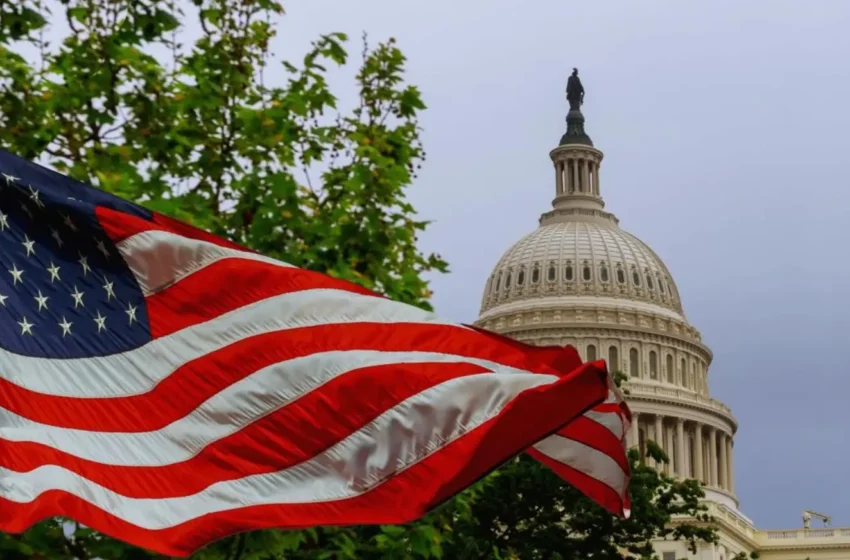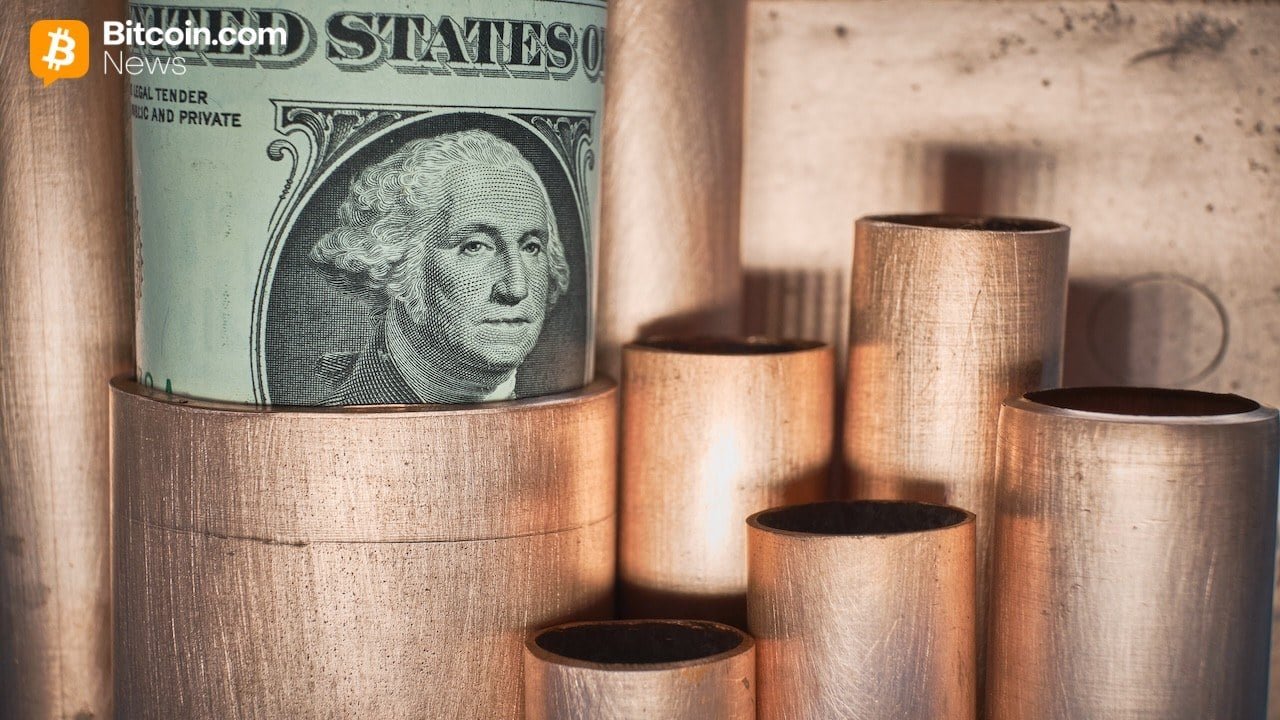Prediction Marketplace Giant Polymarket Acquires YC-Backed Startup Dome
Congress Investigates OCC Role in Debanking Crypto Firms
(Originally posted on : Crypto News – iGaming.org )
U.S. lawmakers are taking a closer look at how banking regulators have handled crypto access, especially for legally operating businesses. Recent actions by the Office of the Comptroller of the Currency (OCC) have raised concerns in Congress, with questions now focused on whether federal agencies indirectly pressured banks to cut ties with certain companies. The investigation comes at a time when crypto firms continue to face hurdles gaining access to basic financial services, and regulators are being asked to clarify their role in that process.
Good to Know
- House Oversight Committee seeks internal OCC records related to crypto policy and enforcement.
- Interpretive Letter 1179, which previously supported crypto engagement, was revoked in March.
- New guidance allows banks to operate in crypto but requires strict risk management and compliance.
U.S. House Oversight and Government Reform Committee Chair James Comer announced on June 25 that the Committee is requesting records from the OCC to determine whether banks have been influenced to “debank” certain lawful entities based on their involvement in crypto or their political views. The letter, addressed to Acting Comptroller Rodney Hood, focuses on internal communications and enforcement actions tied to crypto policy.
At the center of the issue is Interpretive Letter 1179, which gave federally chartered banks a green light to offer crypto-related services. That letter was formally rescinded in March 2025 through Interpretive Letter 1183, part of a shift in OCC policy that no longer requires banks to seek explicit approval for crypto activities like stablecoin reserves, digital asset custody, or blockchain participation. However, institutions must still operate in a way that regulators view as safe and compliant.
Comer’s letter ties into earlier outreach, including a January request to blockchain companies and a February inquiry sent to the FDIC. Lawmakers say whistleblowers have suggested that several large banks faced informal pressure, possibly outside standard regulatory channels. The Committee is concerned that such actions could discourage legitimate crypto development and limit access to essential financial infrastructure.
New players only. Exclusive 111% Welcome Bonus + 111 Free Spins
Comer underscored that the OCC regulates the largest national banks, many of which hold assets between $50 billion and $3 trillion. The Committee now seeks clarity on whether those institutions were steered away from digital assets, and if so, how those decisions were communicated or enforced.
The OCC’s updated approach removed several interagency statements tied to crypto risks but maintained a focus on strong oversight. While direct approvals are no longer necessary, banks must still manage crypto operations responsibly and maintain transparency.
Lawmakers now want answers on whether the current approach fosters fair access—or quietly pushes crypto further to the sidelines.







 Bitcoin
Bitcoin  Ethereum
Ethereum  Tether
Tether  XRP
XRP  USDC
USDC  Solana
Solana  TRON
TRON  Dogecoin
Dogecoin  Lido Staked Ether
Lido Staked Ether  Figure Heloc
Figure Heloc  Bitcoin Cash
Bitcoin Cash  WhiteBIT Coin
WhiteBIT Coin  Cardano
Cardano  USDS
USDS  LEO Token
LEO Token  Wrapped stETH
Wrapped stETH  Hyperliquid
Hyperliquid  Chainlink
Chainlink  Wrapped Bitcoin
Wrapped Bitcoin  Ethena USDe
Ethena USDe  Binance Bridged USDT (BNB Smart Chain)
Binance Bridged USDT (BNB Smart Chain)  Monero
Monero  Canton
Canton  Stellar
Stellar  USD1
USD1  Wrapped eETH
Wrapped eETH  Rain
Rain  Zcash
Zcash  sUSDS
sUSDS  Hedera
Hedera  Litecoin
Litecoin  Dai
Dai  Coinbase Wrapped BTC
Coinbase Wrapped BTC  PayPal USD
PayPal USD  Avalanche
Avalanche  Shiba Inu
Shiba Inu  WETH
WETH  Sui
Sui  World Liberty Financial
World Liberty Financial  Toncoin
Toncoin  USDT0
USDT0  Cronos
Cronos  Tether Gold
Tether Gold  PAX Gold
PAX Gold  MemeCore
MemeCore  Polkadot
Polkadot  Uniswap
Uniswap  Mantle
Mantle  Ethena Staked USDe
Ethena Staked USDe  BlackRock USD Institutional Digital Liquidity Fund
BlackRock USD Institutional Digital Liquidity Fund  Aave
Aave  Pepe
Pepe  Aster
Aster  Falcon USD
Falcon USD  Bittensor
Bittensor  OKB
OKB  Bitget Token
Bitget Token  Global Dollar
Global Dollar  Pi Network
Pi Network  Circle USYC
Circle USYC  syrupUSDC
syrupUSDC  Ripple USD
Ripple USD  HTX DAO
HTX DAO  Ethereum Classic
Ethereum Classic  Sky
Sky  NEAR Protocol
NEAR Protocol  Ondo
Ondo  BFUSD
BFUSD  Pump.fun
Pump.fun  Internet Computer
Internet Computer  Superstate Short Duration U.S. Government Securities Fund (USTB)
Superstate Short Duration U.S. Government Securities Fund (USTB)  Cosmos Hub
Cosmos Hub  POL (ex-MATIC)
POL (ex-MATIC)  Gate
Gate  Worldcoin
Worldcoin  KuCoin
KuCoin  Jupiter Perpetuals Liquidity Provider Token
Jupiter Perpetuals Liquidity Provider Token  Midnight
Midnight  Ethena
Ethena  NEXO
NEXO  Jito Staked SOL
Jito Staked SOL  USDtb
USDtb  Official Trump
Official Trump  Binance-Peg WETH
Binance-Peg WETH  Algorand
Algorand  Rocket Pool ETH
Rocket Pool ETH  Spiko EU T-Bills Money Market Fund
Spiko EU T-Bills Money Market Fund  Binance Bridged USDC (BNB Smart Chain)
Binance Bridged USDC (BNB Smart Chain)  Render
Render  Filecoin
Filecoin  Wrapped BNB
Wrapped BNB  USDD
USDD  Function FBTC
Function FBTC